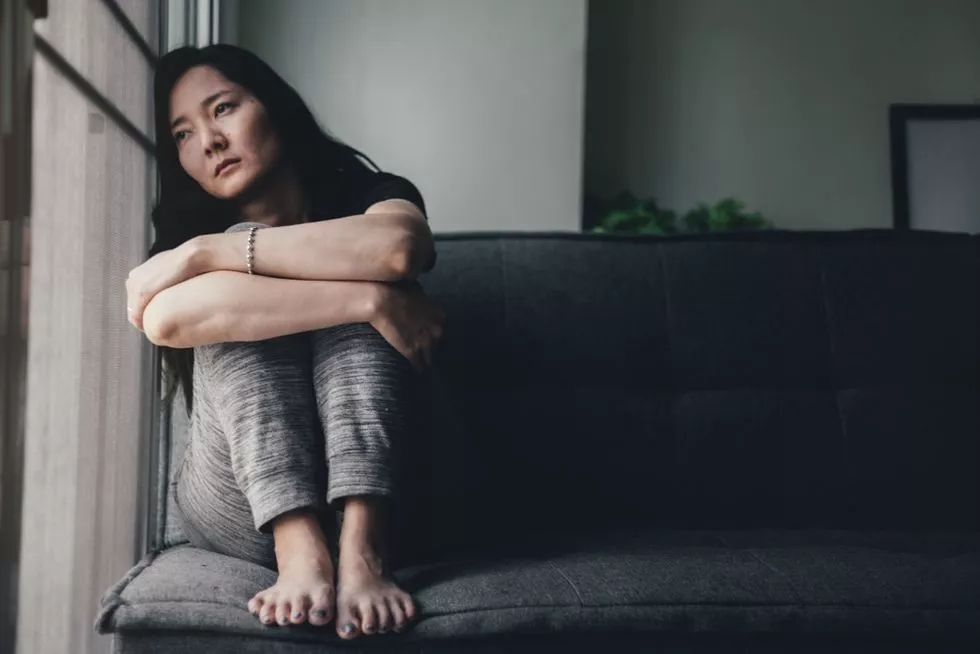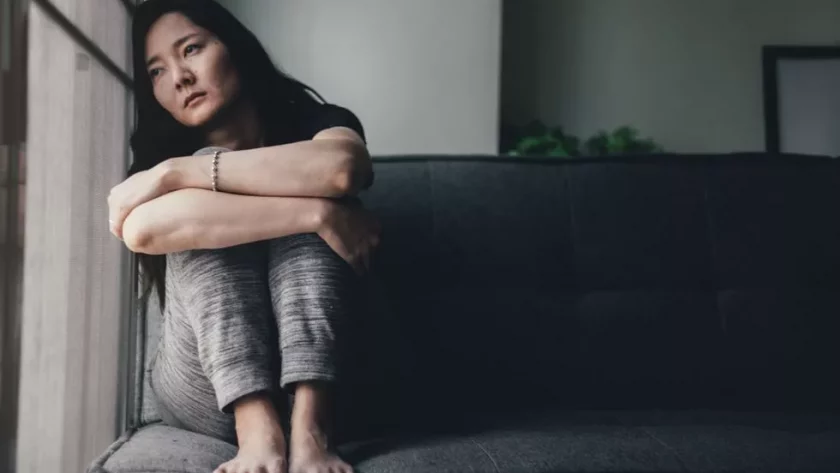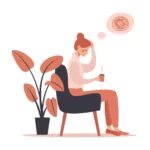Mania
Contents
Mania is a mental disorder, where a person experiences extreme mood swings, like high energy, and then a sudden energy drop.
It is a serious mental disorder that needs family support, therapies, and medicines to manage its symptoms and live a better life.
Mania is also known as a manic disorder or hypomania and low depression, it impacts a person’s daily life, relationships, work, etc.
The mania patient experiences sudden behaviour changes with a high energy level, then a sudden drop.
Moreover don’t be confused with mania, hypomania, and depression all are different, but seen in mania disorder also.
- Mania: A time of severe mood change, energy level change, overall behaviour changes, etc.
- Hypomania: A less dangerous form of mania, but needs medical help.
- Depression: refers to hopelessness, behaviour change, suicidal thoughts coming to mind, etc.
NOTE: It is vital to note that a person who experiences mania doesn’t need to be at risk of bipolar disorder.
Mania is when someone feels extreme behaviour changes, like in energy, even a bit out of control, it may occur for one week.
On the other hand, hypomania is the same but less severe, it can occur for 4 days, and doesn’t yield big matters in connections.
Bipolar disorder also known as manic-depressive illness where a person experiences mixed depression and mania symptoms at the same time.
In addition, depression is a common mental disorder, where a person feels they are alone, hopeless, lack interest in work, etc (1)

Why Did It Occur?
Research has shown that stressful events and other psychosocial aspects contribute to frequent manic phases (4)
However, why it occurs is still unrevealed, but studies reveal that it may occur due to genetic, environmental, and biological factors.
Genes
Genetics or family history of this disorder play a major contribution in bipolar disorder or mania.
Studies reveal that genetic factors enhance the risk of mental and physical disorders and these ratios of 65-70% chance of bipolar disorder (4)
If one partner has bipolar disorder then the child has a 30-35% chance of this disorder, and if both have this disorder, then it increases up to 70%.
A 2023 study demonstrated that a combination of genetic and family past of bipolar disorder may contribute to this disorder.
Environmental Factors
Several environmental factors play a major role in mania, depression, and bipolar disorder:
Stress: Workload, family, financial issues, etc increase the chance of mania, so before it becomes uncontrollable, learn how to manage stress.
Any trauma: loss of a loved one, mental and physical assault or abuse, increases the risk of mental disorder.
Drugs: Excessive alcohol, tobacco use, and illegal drug use easily trigger mania disorder and other mental issues like depression.
Hormones Imbalance
Imbalance in feeling hormones like dopamine, and serotonin are responsible for good mood.
Any extreme disturbance, increase or imbalance in these hormones due to abuse drugs use, etc, can cause mania.
Types of Mania
As we know? mania or hypomania, manic is a mental illness, where severe mood swings occur which lead to behavioural change.
These frequent behaviour changes in energy and mood are known as manic episodes which interfere with patients’ daily lives.
Here are several types of mania which include:
Euthymia: It is considered a normal mania, and experiences mood episodes but are less severe, people with this feel happy, etc.
Hypomania: It is a milder version of mania, where mood swings like increased energy levels interact with sleep and daily life.
Rapid cycle: In these person experiences mood changes within 12 months at least 4 or more mood episodes occur.
Men and women both experience rapid cycle disorder, however, it occurs more in women and causes many mood episodes.
Mixed episodes: In this patient’s experience both mania and depression symptoms, like mood behaviour, hopelessness, sadness, etc.
Symptoms of Mania
Mania is a natural condition that is deemed a part of bipolar I disorder, and bipolar disorder can easily diagnosed through bipolar I disorder.
Here are common symptoms of mania are extreme mood swings which include:
- increased energy levels
- sudden drop in energy
- easily distract from work
- a significant change in behaviour
- irritable mood
- depression symptoms like feeling sadness, alone, etc
Studies reveal that manic episodes appear in men and women present with a depression episode in the initial time.
Other signs and symptoms which include emotional and behavioural changes are:
- Elevated mood
- increased self-esteem to a high level, for example – they think they are top of the world.
- loss control which leads to an increased chance of impulsive behavior
- behaviour changes like super active, rate of speech increase, easily distracted, engaging in dangerous works
- difficult in sleep due to difficulty in controlling thoughts
Cognitive symptoms
- Headache due to rapid thoughts
- rapid thinking and unable to control thoughts
- overthinking
- difficulty in making the decision
Research has shown that patients with mania also experience loss of appetite, and social disengagement due to their behaviour issues.
Living with Mania
Several people live with mania and bipolar disorder, and living with mania is not easy it impacts daily life, relationships, etc.
How can its symptoms impact a person’s daily life are:
As we know manic person is easily distracted and has difficulty on focus which make it harder to achieve deadline (2)
Irritable, instant energy, angry, sad, and sudden energy drop hurt a person’s loved ones, which increases the gap b/w their relationship.
All these extreme mood swings make a person hopeless and burst their feeling, and emotions, which lead to negative outcomes.
If you experience extreme mood swings, then you should talk to your professional doctor, it may be trigger other menta issues.
Treatment of Mania
There are various treatments for mania like medication, therapies, and support, and one of the best ways to treat mania (4)
Medications
There are several medications, but talk to the doctor for absolute results, who will perform tests and according to the diagnosis report, the doctor will provide you with medication.
Here are common medicines which provide your doctor is:
- Mood-stabilizer
- medication for reducing extreme mood swings symptoms
- ketamine (a new medicine that performs actually in rapid cycling illness)
Make sure in case of any health concerns talk to your doctor, early diagnosis and treatment prevent further complications.
Family Support
It is really helpful in reducing mental disorders, and family support and loved ones’ support motivate people to fight with it.
In addition, It is vital to do mental exercises to manage stress and daily life situations there are several ways to prevent mental issues:
- Yoga
- meditation
- CBT (cognitive behavioural therapy)
- breathing exercises
- sleep on time and get enough sleep daily
- regular exercise which increases feel-good hormones
Research indicates that CBT can help individuals by changing their negative thinking and behaviour changes that contribute to mania.
Family therapy and loved one support make a comfortable, deep emotional affection, and encourage the person to fight this disorder.
Therapy positive impact on thoughts, thinking, behaviour, and mental neurotransmitters which overall improve quality (6)
Psychoeducation and psychotherapy are adequate therapies for BD that support the patient in controlling their symptoms (5)
Lifestyle Changes
Several lifestyle changes prevent further health concerns, including mental and physical health:
- Avoid excessive alcohol, and quit smoking
- get enough sleep
- consume healthy diet include:
- vegetables
- fruits
- whole grains
- nuts and seeds
- dairy products
- manage stress by adopting a healthy lifestyle
- get engaged in exercise regularly and do at least 1 hour of daily
An adult person should sleep 7 to 8 hours daily, which will reduce stress levels and other mental woes.
Studies have demonstrated that drinking raises the chance of dying by encouraging heart disease, cancers, liver, and trauma.
Healthytalk8 does not recommend any medication, because everyone has a different body so talk to your doctor for any concern.
Down Line
Mania is a common symptom of bipolar disorder, and not every patient’s mania needs to turn into bipolar disorder.
These symptoms such as extreme mood swings, behaviour, sadness, irritability, anger issues, sudden energy, or drop, alone, etc.
If you experience any discomfort or pain, then seek medical help it may be an early sign of a disorder.




